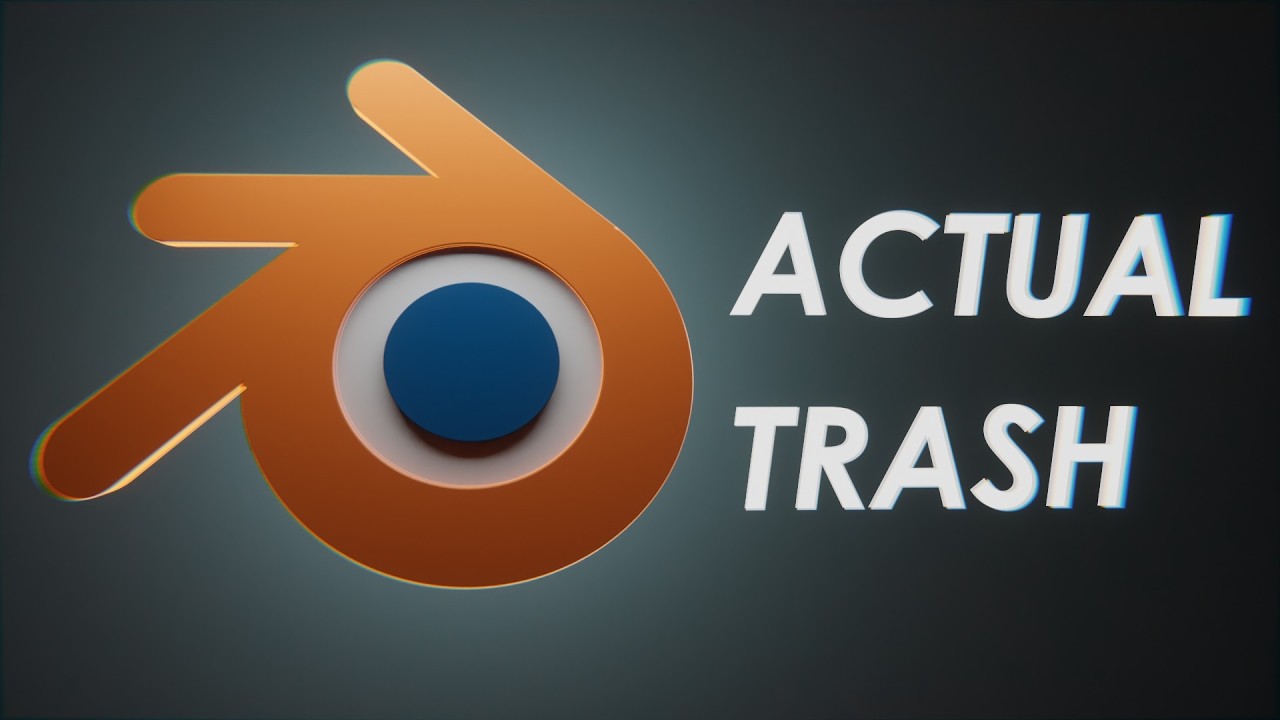Why Do Video Game Studios Avoid Blender?
Summary
TLDRThe script discusses why Blender isn't the industry standard for big game studios despite being free and open-source. It lacks official support, which is crucial for corporations relying on professional assistance. While Blender offers a wide range of features, it falls short in specialization compared to focused programs like Maya or ZBrush. The script also touches on the importance of a smooth pipeline for production workflows, which Blender struggles with compared to industry favorites. Lastly, it addresses the resistance to change and the paradox of corporate spending as reasons why companies stick to established tools.
Takeaways
- 🆓 **Free Software**: Blender is a free program, which is attractive to individuals and corporations due to cost savings.
- 🤔 **Lack of Official Support**: Unlike Blender, Autodesk has a dedicated support network of professionals for troubleshooting and feature development.
- 🛠️ **Feature Specialization**: While Blender is versatile, specialized programs like Maya and Zbrush excel in specific areas like animation and sculpting.
- 🚀 **Innovation Pace**: Corporations prefer established programs that consistently innovate, which Blender struggles with compared to industry giants like Autodesk.
- 🛠️ **Pipeline Integration**: The ease of integrating Blender into existing production pipelines is not as smooth as other programs, impacting workflow efficiency.
- 🏭 **Industry Standard**: The industry standard plays a significant role in adoption, with many studios preferring familiar tools like Maya.
- 📈 **Resistance to Change**: Corporations are often resistant to change, favoring the status quo over new, unfamiliar software like Blender.
- 💼 **Management Inertia**: Executives may see the adoption of new tools as unnecessary when existing solutions are available, even if they are less efficient.
- 💰 **Financial Considerations**: Corporations might prefer to spend money on known software rather than risk the unknown with free alternatives like Blender.
- 📚 **Learning Curve**: Individuals may find it challenging to learn industry-standard software like Maya outside of formal education, impacting career prospects.
Q & A
Why is Blender not the industry standard for big game studios?
-Blender is not the industry standard for big game studios due to several reasons including the lack of an official support network, the need for specialized tools that are often better in other programs, and the complexity of integrating Blender into existing pipelines.
What is the main issue with Blender's support network according to the script?
-The main issue is that Blender has no official support network, which means users have to rely on community forums like Reddit or Stack Exchange, where they can't be sure if the answers they receive are correct or timely.
How do companies like Autodesk provide better support for their software?
-Companies like Autodesk have teams of professional employees whose job is to answer questions and provide support all day long, ensuring a more reliable and immediate response to user queries.
What is the role of support groups in shaping future software features?
-Support groups are not only there to answer questions but also to provide feedback that can help shape future additions to the software, making the development process more responsive to user needs.
Why did Autodesk recently introduce generative AI?
-Autodesk introduced generative AI to enhance their software's capabilities, although the script suggests that the feature might not look good and could take a lot of time to clean up.
What does the script suggest about Blender's versatility compared to more specialized software?
-The script suggests that while Blender is versatile with many features, it may not excel in all areas compared to more specialized software like Maya for animation or Zbrush for sculpting.
What is the significance of the pipeline in game development and how does Blender fare in this aspect?
-The pipeline refers to the workflow from one type of production to the next. Blender makes it easy to stay within its own ecosystem, but integrating with other programs like game engines can be more complex compared to other software.
How does the script describe the integration of Autodesk products with game engines?
-The script describes the integration of Autodesk products with game engines like Unreal as smooth and painless, thanks to direct connections that facilitate a quick transition between different stages of production.
What is one of the 'bad' reasons big companies might not adopt Blender according to the script?
-One of the 'bad' reasons is the resistance to change within corporations. People often prefer to stick with what they know, even if it's not the most efficient or effective solution.
How does the script characterize the management's attitude towards adopting new tools like Blender?
-The script characterizes management as 'lazy' in the sense that they prefer to use existing solutions rather than invest time and resources into learning and adopting new tools.
What paradox does the script highlight regarding corporate spending on software?
-The script highlights a paradox where corporations are fixated on making money but also waste money on software because it's better to spend it than to have it taken by the government in taxes.
Outlines

This section is available to paid users only. Please upgrade to access this part.
Upgrade NowMindmap

This section is available to paid users only. Please upgrade to access this part.
Upgrade NowKeywords

This section is available to paid users only. Please upgrade to access this part.
Upgrade NowHighlights

This section is available to paid users only. Please upgrade to access this part.
Upgrade NowTranscripts

This section is available to paid users only. Please upgrade to access this part.
Upgrade NowBrowse More Related Video

Why do Studios Hate Blender?

The Future of Game Development

Why the Best Animations in the World are Made with Autodesk Maya

The Most Important Blender Features in the Last 20 Years

Open-Source Technology for Big Data Analytics

What is the BEST 3D Software? Blender vs Maya vs 3dsMax vs Cinema 4D vs Houdini vs UE5 (Urdu/Hindi)
5.0 / 5 (0 votes)